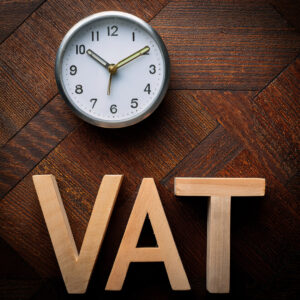16/04/2025
Understanding VAT: Timing for VAT
Value Added Tax (VAT) is a crucial part of business taxation, and understanding its timing is essential for compliance and cash flow management. VAT timing determines when a business must account for VAT on its sales and purchases. This article breaks down the key aspects of VAT timing and how businesses can stay compliant.
When is VAT Due?
VAT is typically due based on the tax point, which is the date that determines when VAT must be recorded and reported to HMRC. The tax point depends on the type of transaction and when it occurs. Here are the primary tax points for VAT:
- Basic Tax Point: The basic tax point for goods is the date when they are supplied or made available to the customer. For services, it is the date when the service is completed. If no invoice is issued, VAT must be accounted for at this point.
- Invoice Tax Point: If an invoice is issued before or within 14 days of the basic tax point, the date of the invoice becomes the tax point. This means VAT is due based on the invoice date rather than the date the goods or services were supplied.
- Advance Payments and Deposits: An advance payment or deposit is a proportion of the total selling price that a customer pays before you supply them with goods or services. The tax point will be either the date you issue a VAT invoice for the advance payment, or the date you receive the advance payment, whichever happens first. If the customer pays you the remaining balance before the goods are delivered or the services are performed, a further tax point is created. This will be either when you issue a VAT invoice for the balance, or when you receive payment of the balance, whichever happens first.
- Continuous Supplies of Services: For ongoing services, such as leasing or subscriptions, VAT is due at regular intervals, usually when the invoice is issued, or payment is received. The tax point is established based on the agreed billing cycle.
Importance of Correct VAT Timing
Understanding and applying the correct VAT timing rules is essential for businesses to:
- Ensure Compliance: Incorrect VAT timing can lead to penalties and interest charges from HMRC.
- Manage Cash Flow: Knowing when VAT is due helps businesses plan for payments and avoid unexpected tax bills.
- Accurate Accounting: Recording VAT at the right time ensures accurate financial statements and reporting.
Tips for Managing VAT Timing
- Keep Clear Records: Maintain well-organised invoices, receipts, and payment records to determine the correct tax point.
- Understand Your VAT Scheme: Different VAT schemes, such as the Cash Accounting Scheme or the Flat Rate Scheme, may affect when VAT is due.
- Use Accounting Software: Automated systems can help track invoices, payments, and tax points, reducing errors and improving efficiency.
- Seek Professional Advice: VAT rules can be complex, and professional guidance can help ensure compliance with regulations.
By understanding the timing of VAT, businesses can stay compliant, manage their finances effectively, and avoid costly mistakes. If you need further clarification on VAT timing, please do get in contact.
Please feel free to get in touch with Will Churcher on 023 8046 1218 or email Will Churcher.


